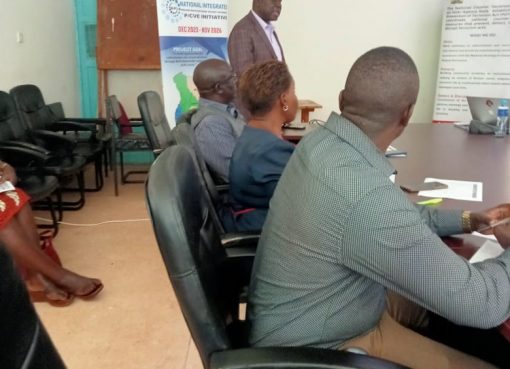After the successful completion of the Digital Literacy Programme (DLP) and issuance of tablets to primary schools, the government will launch the second phase in August 2019, the ICT Principal Secretary (PS), Jerome Ochieng has said.
Ochieng said that the program runs in three phases whereby the just concluded phase I saw the issuance of tablets to primary schools to help pupils to learn how to use the devices.
Speaking on Monday during the prize giving ceremony for the best teacher in the DLP, the PS said that in Phase II the students will be using the devices to learn and that is why the government is adopting the computer lab model.
“In the third phase we will move to production as we want to see the students at that early age coming up with programs and coding that can be actually be put into use,” he said.
Ochieng continued, “The model in phase II is a shared lab with advance learning tools for innovation and creativity. This model promotes collaboration, critical thinking and communication skills. The early period of this project will cover 5,000 public primary schools which will be equipped with ready to use computer labs. Thereafter computer labs will be installed in 7,000 more schools and finally 5,000 by the year 2020.”
For this to succeed, Ochieng said, there is need to ensure that our teachers have the requisite ICT skill sets.
“It is in view of this that this National Teacher Competition Award Ceremony was conceived so that the teachers can be incentivized to enhance their ICT skills. Through this competition, I hope that our teachers will be motivated to use the digital devices for all their teaching activities,” he said.
The PS explained that the Ministry of ICT together with other partners organized the National Teacher Competition between 6th June and 9th July 2018 where all teachers from Public Primary Schools across the country were eligible to participate.
The total number of submissions received were 2,825 from 722 schools where 324 head teachers, 2,458 teachers from regular schools and 43 teachers from special needs schools participated.
“You have the responsibility to use DLP to drive the realization of manufacturing which is one of the Big Four Agenda. I am glad to note that JKUAT and Moi University have both assembled and installed over one million digital devices which were distributed to over 19,000 public primary schools countrywide,” said Ochieng.
He added that there is need to scale up production in JKUAT, Moi and Dedan Kimathi assembly plants in order to meet the required number of devices for implementation of DLP Phase II insisting that these assembly plants will also interphase manufacturing and research for DLP to be a sustainable project.
“In addition, we will reduce reliance on exports of electronic devices and more importantly, create job opportunities for our youth,” he said.
The ICT Authority CEO, Dr. Katherine Getao said that ICT is going to be the driver in transforming the education and lives of the future generation.
“What creates transformation in schools is technology, text books, quality of teachers and attitude of parents,” she said.
The CEO dispelled the notion that technology will replace teachers insisting that teachers are the most important in impacting knowledge to students and technology cannot do away with them but rather complements the teachers’ work.
The top overall teacher was Kazungu Katana Kahindi from Maryango primary school in Kilifi County.
By Joseph Ng’ang’a



